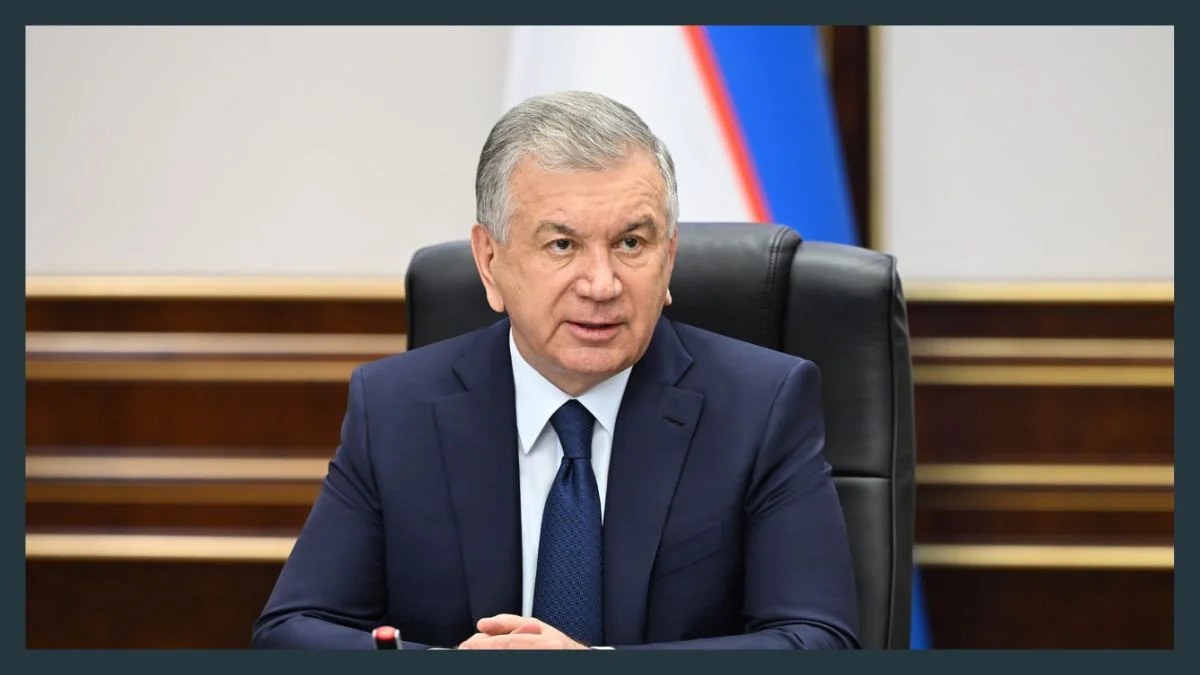Shavkat Mirziyoyev, who has served as the President of Uzbekistan since 2016 and secured re-election with an impressive mandate in 2023, has emerged as a pivotal figure in the realm of Central Asian politics. This article offers a comprehensive overview of his life, his remarkable political journey, and the sweeping reforms that have redefined Uzbekistan under his leadership.
Early Life and Educational Journey:
Born on July 14, 1957, into a family of medical professionals in Uzbekistan’s Jizzakh region, Shavkat Mirziyoyev embarked on a journey that culminated in a degree in mechanical engineering from the Tashkent Institute of Irrigation and Agricultural Mechanisation Engineers in 1981. His academic achievements include a Ph.D. in engineering, solidifying his status as an associate professor.
The Ascent in Politics:
Mirziyoyev’s political journey commenced in 1990 when he became a deputy in the Supreme Soviet of the Uzbek Soviet Socialist Republic. Over the years, he assumed pivotal roles, including serving as the mayor of the Mirzo-Ulugbek district of Tashkent, governor of the Jizzakh region, and mayor of the Samarkand region. Concurrently, he served as a deputy in the Oliy Majlis, the Uzbek Parliament, from 1995 to 2003. His significant contributions to regional development culminated in his appointment as Prime Minister of Uzbekistan in 2003, a role he assumed three more times in 2005, 2010, and 2015.
Presidential Leadership:
In September 2016, following the passing of former Uzbek President Islam Karimov, Shavkat Mirziyoyev was named interim president and was later elected as the nation’s president in December 2016.
The “Honour and Dignity” Reforms:
Mirziyoyev’s presidency has been synonymous with the ambitious “honour and dignity” reforms, encompassing five pivotal pillars:
- Political Renewal: A commitment to infuse transparency and openness into the political system.
- Economic Modernization: Creating a business-friendly environment, economic liberalization, and eradicating the black market for foreign currencies.
- Rule of Law: Strengthening human rights, freedom of speech, and media freedom while upholding the rule of law.
- Social Advancements: Implementing initiatives aimed at poverty alleviation and sustainable development.
- Global Engagement: Focusing on building trust and fostering cooperative relations within Central Asia and globally.
The “New Uzbekistan 2022–2026” Program:
Uzbekistan is currently advancing under the “New Uzbekistan 2022–2026” program under Mirziyoyev’s leadership. This program aims to build upon previous reforms and establish the nation as a premier hub for foreign investment and tourism in Central Asia. The program’s core objectives encompass economic growth, raising per capita GDP to USD 4,000, promoting free-market competition, and streamlining bureaucratic processes.
The Uzbekistan-2030 Strategy:
The ongoing development of the “Uzbekistan-2030” Strategy builds upon earlier initiatives, with priorities that include:
- Individual Empowerment: Creating conditions for personal growth through educational reforms and poverty alleviation.
- Sustainable Economic Progress: Paving the way for enduring economic development.
- Environmental Conservation: Focusing on water conservation and environmental preservation.
- Effective Governance: Ensuring a responsive public administration and a reformed judicial system.
- A Peaceful Nation: A vision for Uzbekistan as a secure and peace-loving nation.
Shavkat Mirziyoyev’s presidency marks a transformative era, both within Uzbekistan and on the global stage. His unwavering commitment to reform and his vision for an empowered Uzbekistan underscore his dedication to improving the lives of Uzbek citizens and fostering sustainable regional development.
ALSO READ: Marc Gabelli: Navigating the Financial Landscape with Expertise and Leadership











